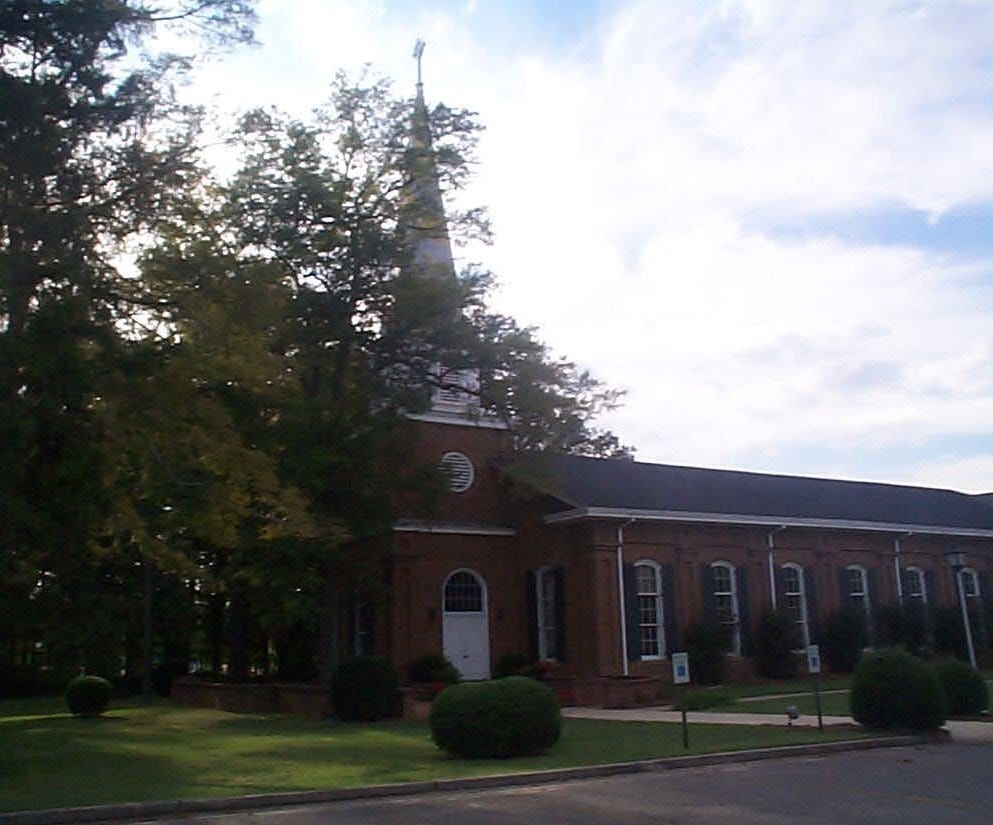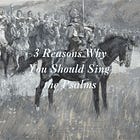The fiery Scot, born and raised in North Ireland, crossed the Atlantic and was ordained in the Synod of Philadelphia in 1735. Shortly thereafter, Craighead met George Whitefield on his missionary journey to the American colonies. The two men came to admire each other as they shared such a love and warmth for their fellow man for they desired everyone to believe in Christ.
The geminal men belonged to the New Side Party of the day. In the 1730s and the 1740s there was a controversy of the present revivals. The Old Side did not favor the revivals, but the New Side did. The controversy boiled over into the split of the Presbyterian Church in 1741. The New Side Synod was thus formed in New York and would go on to plant the Hanover Presbytery of Virginia, where Samuel Davies would labor for many years.

Despite Craighead being a member of the New Side, his synod, the Synod of Philadelphia was in favor of the Old Side. His flame was not only for the things of Christ, but also for the sake of the individual. Alexander Craighead believed that man had the right to choose how he wanted to worship and in certain civil rights the government could not extinguish. His passions grew when he anonymously wrote a pamphlet, criticizing the government of Pennsylvania and expressing the ideal of a freer citizen.
When the governor of Pennsylvania learned that Craighead was the author, he gave it to the Synod of Pennsylvania. Along with his New Side allegiance, he proposed the same views on civil government that the Scottish Covenanters that the Synod did approve of.
At his church, he and other Presbyterians renewed the National Covenant of Scotland and the Solemn League and Covenant. He was subsequently suspended from the Synod.
At this decision, he thought it best that he leave the colony and would later find himself in the mountains of Virginia.
In 1749, he became the pastor at Windy Cove Presbyterian Church. Here he labored for several years, and in 1755 became one of the founding members of the Hanover presbytery.
But in July 1755, General Braddock and his men were ambushed by the Indians, since this was the time of the French and Indian War. The people of Virginia were in disarray as the Indians began plundering homes and villages.
Before all of this upheaval, Craighead experienced persecution and hinderances by the government of Virginia. At that time, any minister that was not apart of the Church of England was not given permission to marry their own people.
Because of these reasons, Craighead left Virginia with his people, and was leaving the backdoor of the house as the Indians were coming to the front. These events mirrored the move of the Scots to the South as Charles II persecuted them with the sword.
In 1758, Craighead became pastor of the Presbyterian congregation on the Rocky River in North Carolina. The church was under care of the Hanover Presbytery as Craighead was installed.
They soon after built a log house alongside a little creek that went by the Indian name ‘Sugaw’. He would preach to the congregation there, regularly, even as they had to walk upwards of fifteen or twenty miles to attend.
Alexander Craighead, until the time of his death, was the only pastor in the land between the Yadkin River and Catawba River, which is about 145 miles in-between.
In 1765, two ministers came to North Carolina, under the authority of the recently reunited Synods of Philadelphia and New York. They divided the congregations of the county into five sections. Craighead, as the pastor of the Rocky River Presbyterian Church and the Sugaw Creek Presbyterian Church, was the chief pastor over the other five congregations. He became the Pastor of the Seven Churches.
When Alexander Craighead died 1766, his body was carried upon two sassafras branches to his burial spot at Sugaw Creek Presbyterian Church. The branches were planted, one at his head and one at his feet, and sprung up into tall, strong trees. “In like manner the words and the example of this man of God took root and grew in the lives of the people of that land.”
The people, influenced by his teachings, soon founded a classical school, which later became known as Queen’s College.
In life, Craighead did stray from the Bible or the Westminster Confession of Faith. He instructed his people to worship God daily and in church on the Lord’s Day as they kept the Sabbath. His fervor was for the simple practice of faith in all his people.
Resources for a Simple Practice of Faith
For Scriptural worship of the Lord, you may use this Psalm Singing Guide. Options range from once a month to once a week. Check it out!
Here is an article on 3 Reasons Why You Should Sing the Psalms:
Like Craighead, we must not stray from Biblical doctrine. Get immersed in the Westminster Confession of Faith with the reading guide:







